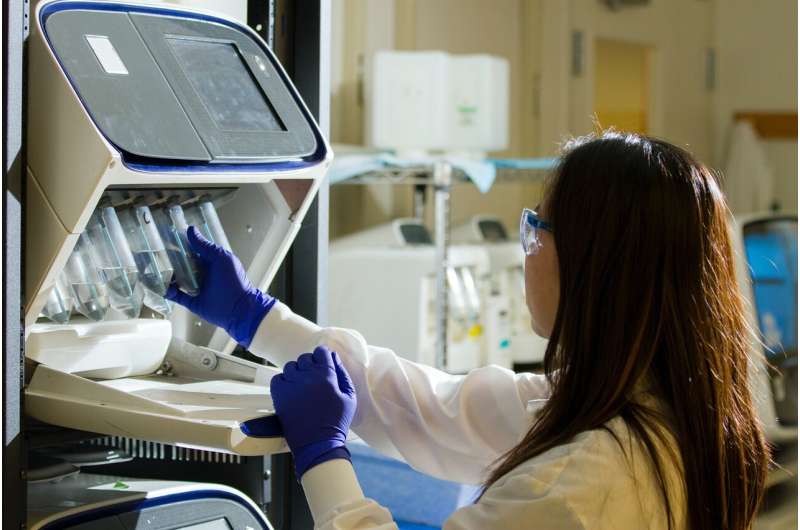First all-human mouse model of inherited prion disease

Human prion diseases include Creutzfeldt-Jakob disease (CJD) and Gerstmann-Sträussler-Scheinker disease (GSS). A new study in the open-access journal PLOS Biology reports a significant advance in the development of mouse models of human prion diseases. The study, by Emmanuel Asante and colleagues of the Medical Research Council Prion Unit at University College London, demonstrates spontaneous formation of disease-relevant, transmissible prion protein assemblies in mice bearing only human forms of the prion protein.
Prion diseases are due to the misfolding and cell-to-cell transmission of prion proteins, which go on to induce misfolding in the recipient cell. A significant feature of prion diseases is that different mutations give rise to diseases with strikingly different clinical manifestations. In studying these diseases, the faithful creation and propagation of distinct disease-specific strains has been essential to understanding transmission and pathogenesis.
The prion diseases have largely been modeled in mice by introducing the gene for a prion protein bearing a disease-causing mutation. In previous studies the disease-causing mutations were not studied directly on the human prion protein gene, but instead the equivalent mutations were introduced into the mouse prion protein gene. This complication can cause formation and propagation of a strain of misfolded protein that is not found in human disease, thereby limiting our understanding of the human prion disease.
To overcome this problem, the research team introduced a mutant human prion gene into mice carrying no mouse prion gene. As the mice aged over a year and a half, they spontaneously developed clusters of misfolded prion protein, something never observed before. When those clusters were used to inoculate younger mice carrying the same mutation, those mice developed misfolded prion protein clusters as well, directly demonstrating infectivity of the mutant protein, and mimicking the infectivity of patient-derived clusters of the same mutant protein. This is the first time that a spontaneous infection due entirely to mutant human prion protein has been shown in mice.
"This new model of an inherited prion disease is likely to provide important insights into human disease that we have previously been unable to study in the mouse," Dr. Asante said, including events of disease initiation and spread that may inform development of therapies.
More information: Asante EA, Linehan JM, Tomlinson A, Jakubcova T, Hamdan S, Grimshaw A, et al. (2020) Spontaneous generation of prions and transmissible PrP amyloid in a humanised transgenic mouse model of A117V GSS. PLoS Biol 18(6): e3000725. doi.org/10.1371/journal.pbio.3000725

















